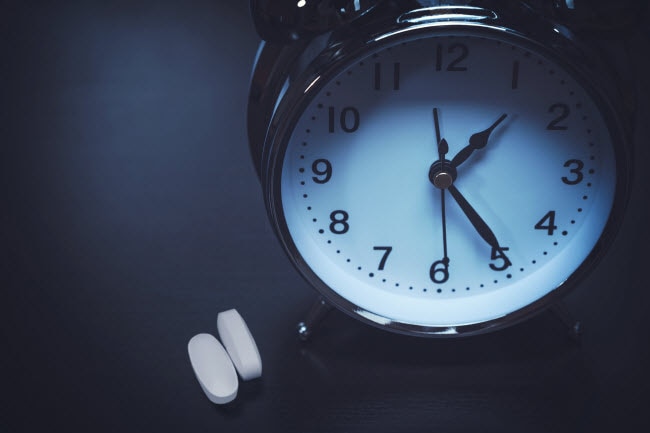Humans are designed to be awake during day and sleep during darkness, but exposure to artificial light and blue light from screens wreaks havoc with our natural sleep cycle. Enter melatonin, a hormone in your body made by the pineal gland, which plays a starring role in sleep. In our insomnia-plagued nation, U.S. consumers will spend more than $425 million on melatonin supplements in 2018, up from $259 million in 2012, according to the Nutrition Business Journal. More than 3 million adults and a half-million children take it.
Sleep is governed not just by habit, but by hormones. The production and release of melatonin in the brain is linked to time of day. Melatonin production ramps up when it's dark and tapers off when it's light. Melatonin levels in the blood stay elevated for about 12 hours before the light of a new day when levels of melatonin are barely detectable. Levels of melatonin also decline with age.
What are some melatonin benefits?
Studies have found melatonin to provide effective relief for insomnia and jet lag. Melatonin, a powerful antioxidant, may deliver a variety of other benefits such as enhance eye health, help with stomach ulcers and heartburn, and ease tinnitus symptoms.†
How about melatonin side effects?
The bulk of research suggests that melatonin promotes sleep and is safe for short-term use. While supplementing with melatonin is not linked to any serious issues, but it can have side effects, including headaches, dizziness and daytime grogginess.†
Is melatonin safe for kids?
Melatonin is often given to kids with attention-deficit disorders, autism, cerebral palsy or developmental disabilities. But because too little is known regarding whether the supplement might also interfere with hormonal development during adolescence, best to side on the err on the side of caution. The potential risks may mean it’s not the best supplement for most children.†
Do I need a prescription for melatonin?
Because melatonin is found in some foods, like barley, olives and walnuts, it’s sold as a dietary supplement rather than a drug. Synthetic melatonin is the only hormone available in the U.S. without a prescription.
Can you take too much melatonin?
The effective dosage for melatonin supplements can vary from person to person. If you take too much, you may feel extremely sleepy during unintended times or experience intense dreams or nightmares.
How much melatonin should I take?
The safest dose is the lowest effective dose that helps you fall asleep without causing side effects. Typically, a dose of melatonin between 0.2 and 5 mg is considered a safe starting dose. You also need to factor in your body weight, age and sensitivity to the supplement to calculate an appropriate dose for your specific needs.†
How long does it take for melatonin to work?
If you have trouble falling asleep, you should take melatonin 30 minutes before bedtime. But people who suffer from delayed sleep phase syndrome—also known as night owls—may want to take melatonin several hours before they intend to fall asleep. For example, if you tend to fall asleep at 1 a.m., but you desire to go to bed at 10 p.m., you may consider taking it at as early as 8 p.m.
Can you take melatonin while pregnant?
Again, most research points to melatonin’s safety record, but there are some holes in the data, specifically regarding pregnancy. One study done on animals did find that additional melatonin during pregnancy resulted in lower maternal and baby birth weight.†
Can melatonin relieve jet lag?
Several studies have suggested that melatonin is helpful for jet lag if taken a few days before and after travel. The time at which you take melatonin is connected to which direction you are flying. According to the Mayo Clinic, “If you're trying to reset your body clock to a later time, such as after flying east, you should take melatonin at local bedtime nightly until you have become adapted to local time. If you're trying to reset your body clock to an earlier time, such as after flying west, melatonin should be taken in the morning.”
†These statements have not been approved by the Food and Drug Administration. These products are not intended to diagnose, treat, cure or prevent disease.




